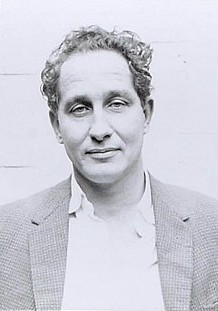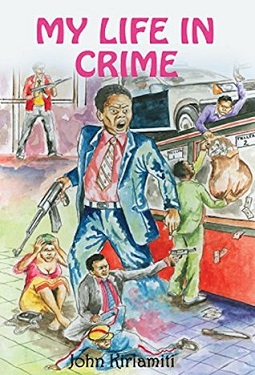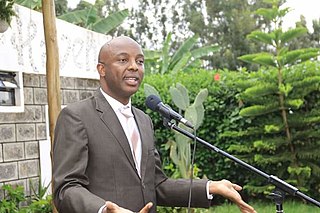Life imprisonment is any sentence of imprisonment for a crime under which convicted people are to remain in prison for the rest of their natural lives or indefinitely until pardoned, paroled, or otherwise commuted to a fixed term. Some countries have life imprisonment sentences as 25 years, such as the United States. Crimes for which, in some countries, a person could receive this sentence include murder, torture, terrorism, child abuse resulting in death, rape, espionage, treason, drug trafficking, drug possession, human trafficking, severe fraud and financial crimes, aggravated criminal damage, arson, kidnapping, burglary, and robbery, piracy, aircraft hijacking, and genocide, crimes against humanity, war crimes, severe cases of child pornography, or any three felonies in case of three-strikes law. Life imprisonment can also be imposed, in certain countries, for traffic offences causing death. Life imprisonment is not used in all countries; Portugal was the first country to abolish life imprisonment, in 1884.

The Great Train Robbery was the robbery of £2.3 million from a Royal Mail train heading from Glasgow to London on the West Coast Main Line in the early hours of 8 August 1963 at Bridego Railway Bridge, Ledburn, near Mentmore in Buckinghamshire, England.

Ronald Arthur Biggs was an English criminal who helped plan and carry out the Great Train Robbery of 1963. He subsequently became notorious for his escape from prison in 1965, living as a fugitive for 36 years, and for his various publicity stunts while in exile. In 2001, Biggs returned to the United Kingdom and spent several years in prison, where his health rapidly declined. He was released from prison on compassionate grounds in August 2009 and died in a nursing home in December 2013.

Murang'a County is one of the counties of Kenya's former Central Province. Its largest town and capital is Murang'a, which was referred to as Fort Hall during the colonial era. The county is inhabited mainly by and is considered the birthplace of the Gikuyu, the largest ethnic group in Kenya. The county has a population of 1,056,640 based on the 2019 census.
Jack Henry Abbott was an American criminal and author. With a long history of criminal convictions, Abbott's writing concerning his life and experiences was lauded by a number of well-known literary critics, including author Norman Mailer. Due partly to lobbying by Mailer and others on Abbott's behalf, Abbott was released from prison in 1981 where he was serving sentences for forgery, manslaughter, and bank robbery. Abbott's memoir In the Belly of the Beast was published with positive reviews soon after his release. Six weeks after being paroled from prison, Abbott stabbed and killed a waiter outside a New York City cafe. Abbott was convicted and sent back to prison, where he killed himself in 2002.
Mungiki is a banned ethnic organisation in Kenya. The name means "a united people" or "multitude" in the Kikuyu language. The religion, which apparently originated in the late 1980s, is secretive and bears some similarity to mystery religions. Specifics of their origin and doctrines are unclear. What is clear is that they favour a return to indigenous African traditions.
Thomas Patrick Gilbert Cholmondeley was a Kenyan farmer. He was the great-grandson of the 3rd Baron Delamere, one of the first and most influential British settlers in Kenya, and was heir to the Delamere title at the time of his death, being the eldest son of the 5th Baron Delamere.

The Kenyan Premier League (KPL), officially known as the FKF Premier League and as the BetKing Premier League (BPL) for sponsorship reasons, is a professional league for men's association football clubs in Kenya. Standing at the top of the Kenyan football league system, the league was formed in 1963 under the Kenya Football Federation but is now controlled by the Football Kenya Federation. It is contested by 18 clubs and operates on a promotion and relegation system with the Kenyan National Super League. Tusker are the current champions having won the 2021–22 season.
There is a high crime rate in all regions of Kenya. Petty offences are the most common crime with stealing being the most reported crime. Robbery and theft are among the least cited criminal offences. Crime in Kenya is as low as in countries like Tunisia with a rating of 3.46 crimes per 100,000 people. However, it is important to note that crime in Kenya often goes unreported and police often lack the training or experience to effectively respond to crimes. Despite the reportedly somewhat low crime rate, Kenya has a big problem with organized crime and many gangs work with corrupt police officers and sometimes even the government. Kenya has a criminality score of 6.95 on the Organized Crime Index, the 11th most in the world.

Volney Everett "Curley" Davis was an American bank robber and Great Depression-era outlaw. A longtime Minnesota bandit, he was the boyfriend of Edna Murray and an associate of both the John Dillinger and Alvin Karpis-Barker gangs during the 1930s.
Lionel Dumont is a former French soldier currently serving a 25-year sentence in prison. He converted to Islam after serving with peacekeepers in Somalia. He was later accused of participating in the Gang de Roubaix, which unsuccessfully tried to set a car bomb during the G7 meeting in Lille in March 1996.
Kangemi is a slum in Kenya located, like many other slums in Nairobi, on the outskirts of the city. It is bordered on the north by the middle-class neighbourhoods of Loresho and Kibagare and Westlands on its west. Its southern border connects with Kawangware, another large slum and its eastern border connects to Mountain View, another middle class enclave. It is on the road connecting Nairobi with Naivasha. Kangemi likely has more than 100,000 residents. While it is a multi-ethnic slum, the largest group of residents consists of the Luhya tribe.

Rufe Persful was an American criminal, convicted for murder, kidnapping and robbery. He was considered one of the most dangerous criminals of his era by the authorities. Convicted of the murder and robbery of an elderly man at the age of 18, he was sentenced to 15 years in Arkansas State Penitentiary, but unlike a standard prison, it involved farm labor. He was given the task of shooting fellow inmates with a shotgun if they attempted to escape. He killed and disabled many prisoners during his time at the Arkansas Penitentiary, punctuated by periods of parole as a reward for his prison protection, and then re-offending and being sent back to resume his role. In December 1934, Persful was convicted for kidnapping and robbery in Paragould, Arkansas and sentenced to 20 years, after which he was transferred to United States Penitentiary, Atlanta. Two inmates recognized him from Arkansas and word spread of his killing of fellow inmates and he began being severely abused. He was transferred to Alcatraz Federal Penitentiary a year later but was recognized and continued to be tortured by his fellow inmates because of his past offenses. In 1937, Persful attempted to cut off his hands in sheer desperation of his experiences at Alcatraz and was diagnosed with schizophrenia. He was eventually sent to McNeil Island Penitentiary, where he was again recognized and suffered much abuse from his fellow inmates, despite being heavily watched over by the prison staff. Persful was released in April 1948 and moved in with a relative in Gary, Indiana, never to be convicted of a crime again.

My Life in Crime is a 1984 novel by Kenyan author John Kiriamiti. It is a fictionalized account of Kiriamiti's criminality in Kenya during the 1960s and 1970s. The novel details Kiriamiti's crimes under the alias Jack Zollo that led to his imprisonment. It is the first novel in Kiriamiti's My Life... trilogy, which is currently being made into a film.

My Life with a Criminal is a 1989 novel by Kenyan author John Kiriamiti. It is the sequel to Kiriamiti's first book in the My Life... trilogy, My Life in Crime, and is told from the point of view of his girlfriend, Milly. A film adaptation of the trilogy is currently being made.
Kenyan crime fiction is a genre of crime fiction that is set in the country of Kenya, and usually written by Kenyan authors. According to G.J. Demko of Dartmouth College, "The fundamental premise of all [crime fiction] is a society that is ordered and real but becomes disordered as a result of a crime imposed on that society. In the normal case, a hero arrives - an officer of the law, a private detective or an amateur sleuth - and via logical deduction, hard work or luck, solves the crime, identifies the perpetrator, and order is restored." However, Kenyan crime fiction differs slightly from Demko's definition because of the following reasons: crime is often so pervasive in societies portrayed in Kenyan crime novels that it becomes almost a part of the order, and many times crimes are not conclusively solved by the end of the stories, mimicking the real-life cyclical nature of crime.

Irungu Kang'ata is a Kenyan politician. He is the governor of Muranga County. He also is the former senator of Murang'a County, and the former Senate of Kenya Majority Chief Whip, former member of parliament for Kiharu Constituency and a former Councillor for Central Ward in Murang'a town. He is a law graduate from the University of Nairobi and a principal in the firm Irungu Kangata & Co. Advocates located at Flamingo Towers 4th floor, Upperhill, Nairobi. He holds PhD (Law) University of Nairobi and teaches law at Catholic University of Eastern Africa, Nairobi.
John Kiriamiti is a Kenyan former bank robber turned writer. Born in Thuita Village, Kamacharia Location of Murang'a District in Central Kenya, he is the second of the nine children of Albert and Anne Wanjiru Kiriamiti, both primary school teachers in Murang'a.
Ainea Ojiambo, is a Kenyan actor. He is best known for the roles in the films The Constant Gardener, Bullion and Jack Zollo: My Life in Crime.
Kayole is a low-income neighbourhood in the city of Nairobi. Located within the larger Eastlands area of Nairobi, it is approximately 11 kilometres (6.8 mi) east of the central business district.









